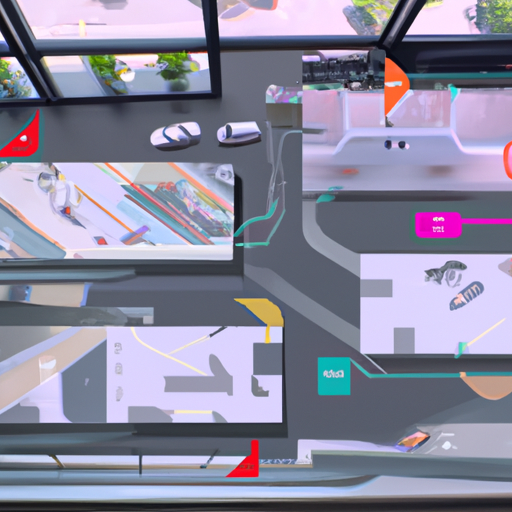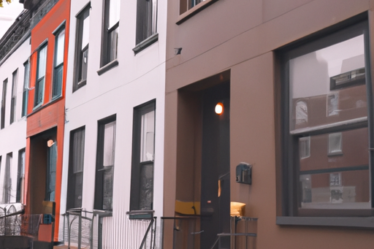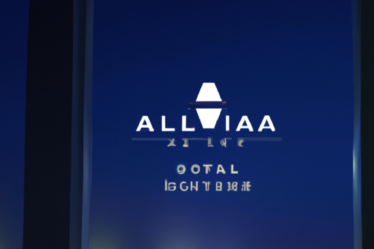
Benefits of Cloud-Hosted Hotel PMS Data Ownership
The Importance of Cloud-Hosted Hotel PMS Data Ownership
In today’s digital age, data is king. It drives decision-making, enhances customer experiences, and improves operational efficiency. This is especially true in the hospitality industry, where hotels rely on data to understand guest preferences, streamline operations, and drive revenue. One crucial aspect of data management in hotels is the ownership of the data generated by their property management system (PMS). With the rise of cloud-hosted PMS solutions, the importance of data ownership has become even more critical.
Cloud-hosted PMS solutions offer numerous benefits to hotels, including increased accessibility, scalability, and cost-effectiveness. However, one aspect that is often overlooked is data ownership. When a hotel chooses a cloud-hosted PMS, it must ensure that it retains full ownership and control over its data. This means that the hotel should have the ability to access, export, and delete its data at any time, without any restrictions or limitations imposed by the PMS provider.
One of the primary benefits of owning your PMS data is the ability to leverage it for business intelligence and analytics. Hotels generate vast amounts of data every day, including guest profiles, booking patterns, and revenue reports. By owning this data, hotels can analyze it to gain valuable insights into guest behavior, market trends, and operational performance. These insights can then be used to make informed decisions, improve guest experiences, and drive revenue growth.
Another advantage of data ownership is the ability to integrate the PMS data with other systems and applications. Hotels often use multiple software solutions, such as revenue management systems, customer relationship management tools, and online distribution channels. By owning their PMS data, hotels can easily integrate it with these systems, enabling seamless data flow and eliminating the need for manual data entry or data synchronization.
Data ownership also plays a crucial role in data security and compliance. With the increasing number of data breaches and privacy concerns, hotels must ensure that their data is protected and handled in accordance with applicable regulations, such as the General Data Protection Regulation (GDPR). By owning their PMS data, hotels have full control over its security measures, including encryption, access controls, and data backup. This allows them to implement robust security protocols and ensure compliance with data protection laws.
Furthermore, data ownership provides hotels with the flexibility to switch PMS providers without losing their valuable data. In the past, migrating from one PMS to another was a complex and time-consuming process, often resulting in data loss or corruption. However, with cloud-hosted PMS solutions, hotels can easily export their data and import it into a new system, ensuring a smooth transition without any disruption to their operations.
In conclusion, the importance of cloud-hosted hotel PMS data ownership cannot be overstated. By owning their data, hotels can leverage it for business intelligence, integrate it with other systems, ensure data security and compliance, and have the flexibility to switch PMS providers. As hotels continue to embrace cloud technology, it is crucial for them to prioritize data ownership and choose a PMS provider that respects and supports their ownership rights. After all, data is not just a valuable asset; it is the lifeblood of the modern hotel industry.
Security Measures for Cloud-Hosted Hotel PMS Data Ownership

The Importance of Cloud-Hosted Hotel PMS Data Ownership
In today’s digital age, the hospitality industry has embraced cloud technology to streamline operations and enhance guest experiences. One crucial aspect of this digital transformation is the adoption of cloud-hosted hotel property management systems (PMS). These systems store and manage a wealth of sensitive data, including guest information, financial records, and operational details. As such, it is essential for hoteliers to understand the importance of data ownership and take appropriate security measures to protect this valuable asset.
Cloud-hosted PMS offers numerous benefits to hoteliers, including increased efficiency, scalability, and cost savings. However, it also introduces new challenges, particularly in terms of data ownership and security. When hoteliers choose to store their data in the cloud, they are essentially entrusting a third-party provider with their most valuable asset. Therefore, it is crucial to establish clear ownership rights and ensure that the data is adequately protected.
One of the primary reasons why data ownership is important is compliance with data protection regulations. In recent years, governments around the world have enacted stringent data protection laws, such as the European Union’s General Data Protection Regulation (GDPR). These regulations require businesses to take responsibility for the data they collect and process, including ensuring its security and privacy. By owning their data, hoteliers can maintain control over how it is handled and ensure compliance with these regulations.
Data ownership also plays a vital role in protecting a hotel’s reputation. In the event of a data breach or unauthorized access, the responsibility ultimately falls on the hotelier. If the data is owned by a third-party provider, it can be challenging to determine who is accountable for any security incidents. By retaining ownership of their data, hoteliers can take immediate action to address any breaches and mitigate potential damage to their reputation.
To ensure the security of cloud-hosted PMS data ownership, hoteliers must implement robust security measures. One such measure is encryption, which involves encoding the data to make it unreadable to unauthorized individuals. Encryption ensures that even if the data is intercepted, it remains protected. Hoteliers should also implement access controls, such as strong passwords and multi-factor authentication, to prevent unauthorized access to the data.
Regular data backups are another essential security measure. By regularly backing up their data, hoteliers can ensure that they have a copy of their information in case of data loss or system failure. These backups should be stored securely and tested periodically to ensure their integrity.
In addition to technical security measures, hoteliers should also establish clear contractual agreements with their cloud service providers. These agreements should outline the responsibilities and liabilities of both parties regarding data ownership and security. Hoteliers should also conduct due diligence when selecting a cloud service provider, ensuring that they have a strong track record in data protection and compliance.
In conclusion, data ownership is of utmost importance when it comes to cloud-hosted hotel PMS. Hoteliers must understand the significance of owning their data and take appropriate security measures to protect it. By doing so, they can ensure compliance with data protection regulations, protect their reputation, and safeguard their most valuable asset. With the right security measures in place, hoteliers can confidently embrace the benefits of cloud technology while maintaining control over their data.
Future Trends in Cloud-Hosted Hotel PMS Data Ownership
The Importance of Cloud-Hosted Hotel PMS Data Ownership
In today’s digital age, cloud technology has become an integral part of many industries, including the hospitality sector. Cloud-hosted hotel property management systems (PMS) have revolutionized the way hotels manage their operations, from reservations and guest profiles to housekeeping and revenue management. However, one aspect that is often overlooked is the importance of data ownership in cloud-hosted PMS.
Data ownership refers to the rights and control a hotel has over the data it generates and stores in the cloud. With cloud-hosted PMS, hotels rely on third-party providers to store and manage their data. While this offers numerous benefits, such as reduced IT infrastructure costs and increased accessibility, it also raises concerns about data security and ownership.
One of the key advantages of cloud-hosted PMS is the ability to access data from anywhere, at any time. This is particularly beneficial for hoteliers who need to make informed decisions on the go. With a cloud-based PMS, hotel staff can access real-time data on reservations, occupancy rates, and revenue, allowing them to respond quickly to changing market conditions and guest demands.
However, this convenience comes with a trade-off. By entrusting their data to a third-party provider, hotels relinquish some control over their data. This raises concerns about data security and privacy. Hotels must ensure that their cloud provider has robust security measures in place to protect their data from unauthorized access or breaches. Additionally, hotels should have clear agreements in place with their cloud provider regarding data ownership and usage rights.
Data ownership is not just about security; it also has legal implications. Hotels are responsible for complying with data protection regulations, such as the General Data Protection Regulation (GDPR) in the European Union. Under these regulations, hotels must ensure that they have the necessary consent from guests to collect and process their personal data. Hotels must also have mechanisms in place to respond to data subject requests, such as providing guests with access to their data or deleting it upon request.
Furthermore, data ownership is crucial for hotels to maintain their competitive edge. In today’s data-driven world, hotels can gain valuable insights from analyzing their data. By understanding guest preferences, booking patterns, and spending habits, hotels can tailor their marketing strategies and improve guest experiences. However, to fully leverage the power of data analytics, hotels need to have ownership and control over their data. This allows them to integrate data from various sources, such as loyalty programs and online travel agencies, to gain a comprehensive view of their business.
To ensure data ownership in cloud-hosted PMS, hotels should carefully select their cloud provider. They should choose a provider that offers robust security measures, data encryption, and regular backups. Hotels should also review the provider’s data ownership policies and ensure that they align with their own data protection and privacy requirements.
In conclusion, data ownership is a critical aspect of cloud-hosted hotel PMS. While cloud technology offers numerous benefits, hotels must be mindful of the potential risks and challenges associated with data security and privacy. By selecting a reliable cloud provider and establishing clear agreements on data ownership, hotels can confidently embrace cloud-hosted PMS and leverage the power of data to drive their business forward.


